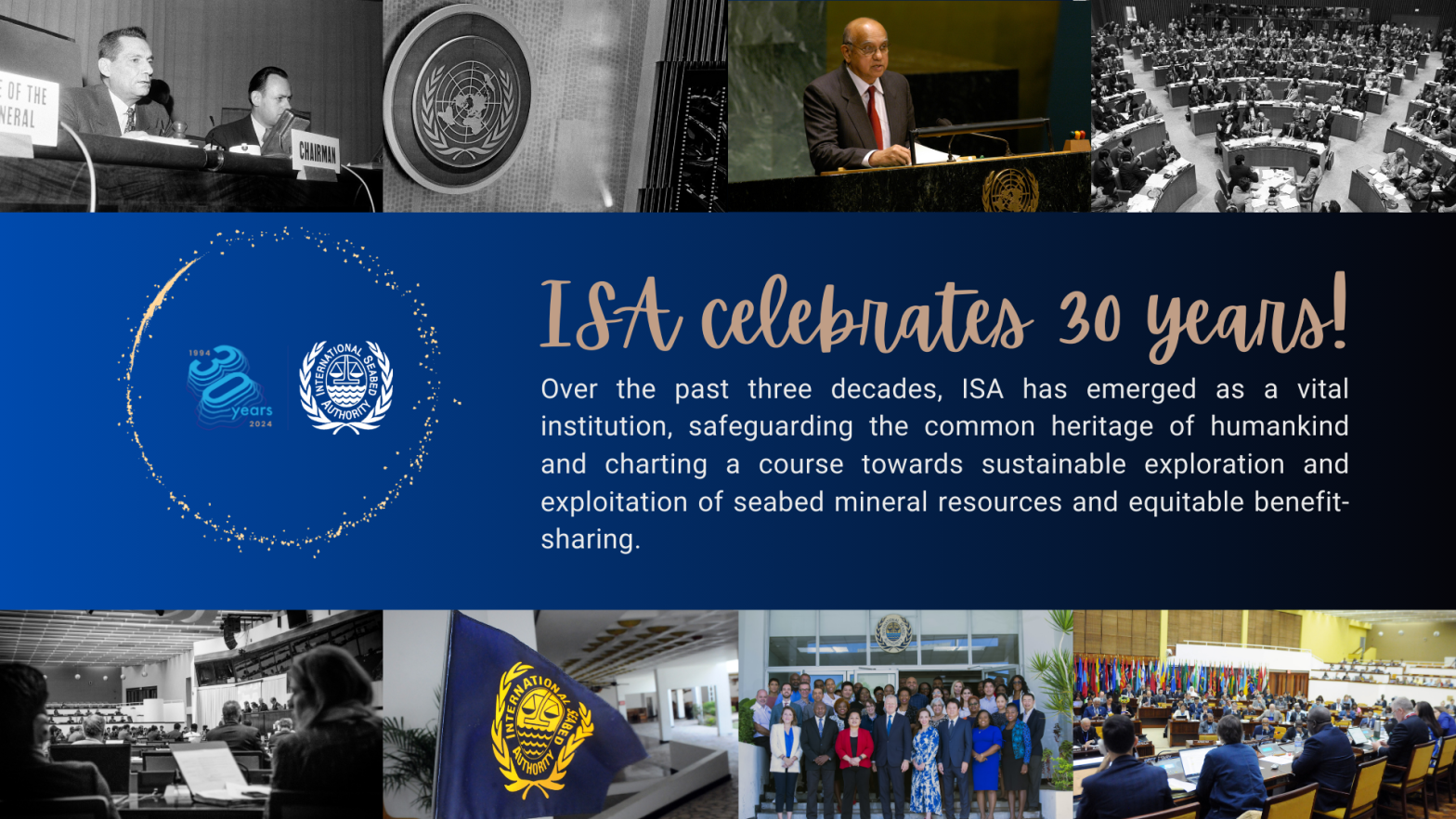The thirtieth anniversary of the establishment of the International Seabed Authority (ISA) marks a significant milestone in the history of international ocean governance. Over the past three decades, ISA has emerged as a central institution of global ocean architecture, safeguarding the common heritage of humankind and charting a course towards the responsible and sustainable exploitation of seabed mineral resources for the benefit of all.
From adopting pioneering regulations governing exploration activities to the ongoing development of a robust exploitation regime, ISA has laid the foundation for a future where seabed mineral resources can be harnessed responsibly and equitably.
Over the past 30 years, the regime for the Area has been strengthened through almost universal participation, tenacious diplomacy for the effective management of the Area for the benefit of all humankind, commitment to the effective implementation of the United Nations Convention on the Law of the Sea and the 1994 Agreement and wide participation of a vibrant community of stakeholders in decision-making processes and creative thinking.
Together with our Member States, contractors and partners, we have fostered a culture of scientific inquiry, promoting cutting-edge research and technological innovation and advancing knowledge and understanding of the deep sea for the benefit of all.
As we reflect on our past, it is imperative to acknowledge the challenges that lie ahead. The increasing demand for critical minerals to support the transition to low-carbon economies, coupled with growing interest in seabed minerals, underscores the need for a balanced approach that prioritizes environmental protection, social equity and equitable sharing of benefits.
ISA must remain at the forefront of international ocean governance if we are to address these challenges lying ahead. We must continue to strengthen our regulatory framework, ensuring that it is both robust and adaptable to evolving technological and environmental realities. We must also prioritize capacity development and technology transfer, empowering developing States to participate meaningfully in the development and utilization of the seabed mineral resources.
As we look to the future, I am confident that ISA will continue to play a pivotal role in shaping the international rules for the sustainable use of oceanic common goods, building on a legacy of 30 years of multilateralism as the essential framework for the peaceful use of the oceans and its resources and the rule of law.
ISA will also make a fundamental contribution to the effective implementation of the 2023 Agreement under UNCLOS for the conservation and sustainable use of biodiversity in areas beyond national jurisdiction, including other processes, such as the Kunming-Montreal global biodiversity framework, the 2030 Agenda for Sustainable Development and the United Nations Decade of Ocean Science for Sustainable Development. By working together, we can ensure that the seabed mineral resources are used for the benefit of all humanity, present and future.
Let us celebrate this 30-year milestone with a renewed commitment to our shared vision of a sustainable and equitable ocean future.


